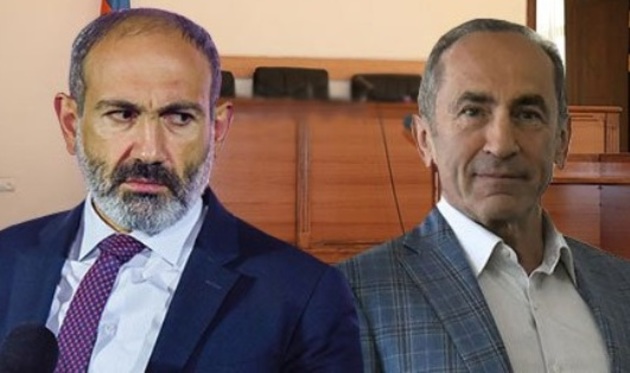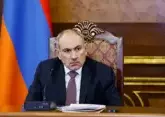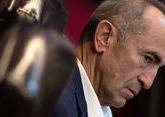The election campaign in Armenia started to take shape: Prime Minister Nikol Pashinyan and former president Robert Kocharyan entered the picture. While leaders of the systemic and non-systemic opposition follow their traditional election strategy – it's not about winning, it's about taking part – real participants of the election process try to secure the backing of Moscow as political influence of Russia on Armenia has increased heavily after the defeat in the Second Karabkh War.
Both candidates chose the most available and logically measured strategies. Pashinyan announced his upcoming visit to Moscow and negotiations with Russian President Vladimir Putin on April 7th. The agenda of the summit is quite clear: Karabakh commitment compliance and upcoming early elections in Armenia. Such personal meetings are vitally important for Pashinyan as today Armenia’s security directly depends on Russian presence in the region while reputation of Armenian Premier is vulnerable because it is supported only by his electoral base.
Robert Kocharyan cannot afford an opportunity to meet Vladimir Putin personally. Even though in the early 2000s, there were highly trusted relations between them. At the same time, Kocharyan has unlimited opportunities to use Russian media space: the former president gives interviews to Russian media and participates in shows on federal channels. In his interviews, he criticizes the current authorities of the republic for shortsightedness and political bias and prizes the period of his presidency.
Both Kocharyan and Pashinyan are ready to closely cooperate with Moscow; however, the difference is in limits of cooperation. Just like Kocharyan, Pashinyan is ready to support political, economic, and infrastructural interests of Russia in the region, as well as to comply Karabakh commitments. However, unlike Kocharyan, Premier considers close cooperation with Armenia’s Western partners in the sphere of the post-war order. Kocharyan is less loyal to the West and entirely goes by Moscow as a mediator in settling post-war challenges between Baku and Yerevan.
At the same time, Kocharyan is not ready to sacrifice priorities of his clan, even if Moscow’ regional interests intersect with interests of leaders of the nonexistent unrecognized “NKR.” Pashinyan doesn’t feel obliged neither to the Armenian military nor to Karabakh separatists. Pashinyan is a civil person who doesn’t connect with military structures of Armenia. Many people understand that the defeat in the Second Karabakh War is a result of superiority of Azerbaijani armed forces.
Kocharyan is not ready to get rid of the longstanding ideology of separatism and revenge-seeking. He still thinks that Turkey and Azerbaijan are main threats to Armenia’s security. Meanwhile, Pashinyan’s foreign policy moves step-by-step toward revision of deeply-rooted relations between Armenia, Turkey, and Azerbaijan in favor of international détente.
Pashinyan is ready to do his best to stabilize internal political situation in the republic. Kocharyan cannot promise that no big political campaign against the current prime minister and his supporters will be organized; and as a result of it, whole Armenia could be shaken and the tense situation in border regions of the republic could become highly explosive. It may negatively influence implementation of de-blockade of borders and transport corridors interesting to Russia.
Moscow faces a difficult choice. On the one hand, there is a longstanding partner and supporter of a pro-Russian direction of Armenia’s development. On the other hand, there is an alien politician who, at the same time, is able to be the only guarantor of Karabakh commitments. The paradox is that a pro-Russian politician Kocharyan as the leader of Armenia doesn’t attract Moscow.










